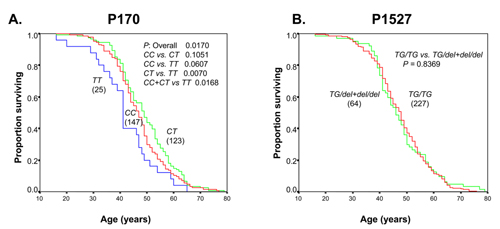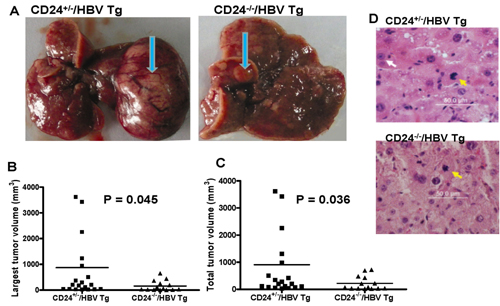In September, 2009, Hepatology published the study from the collaboration of Prof Shengdian Wang, Yang Liu in University of Michigan and Fu-Sheng Wang in Beijing 302 Hospital in a paper entitled, “CD24 polymorphisms affect risk and progression of chronic hepatitis B virus infection”.
The immune responses play an intriguing role in pathogenesis of HBV infection. Since HBV is not directly cytopathic for the hepatocytes, the host’ immune response is thought to be responsible for both viral clearance and liver diseases after HBV infection. Therefore it is logical that genes regulating immune responses may be involved in the risk and progression of chronic HBV infection. CD24, as a costimulatory and adhesive molecule, plays an important role in autoimmune disease and cancer, but few are known on the relation of CD24 with infectious diseases.
They investigated the immuno-pathogenic mechanisms in chronic HBV infection by combing basic and clinical research. They collected clinical samples and data from Beijing 302 Hospital and analyzed 609 samples of chronic HBV patients and383 normal controls for the distribution of CD24 genotypes. They found that CD24 P170T allele, which is expressed at a higher level, is associated with an increased risk of chronic hepatitis B virus infection. Among the chronic hepatitis B virus patients, this allele has a higher viral load, and is also associated with more rapid progression to liver cirrhosis and hepatocellular carcinoma in comparison to the P170C allele. In contrast, a di-nucleotide deletion at position 1527-1528 (P1527del), which reduces CD24 expression, is associated with a significantly reduced risk of chronic hepatitis B virus infection. To confirm the role for CD24 in liver carcinogenesis, they compared the size of liver tumor developed in CD24-/- and CD24+/- hepatitis B virus transgenic mice. Their data demonstrated that targeted mutation of CD24 drastically reduced the sizes of spontaneous liver cancer in the hepatitis B virus transgenic mice. These data demonstrate that genetic variation of CD24 may be an important determinant for the outcome of chronic hepatitis B virus infection. This willprovide important insights on pathogenesis and immunotherapy of chronic HBV infection, LC and HCC.
Dr. Dong-Ling Li, an assistant professor, and Ling-Hua Zheng, a Ph.D student, are the co-first authors in this paper. The project was funded by the National Natural Sciences Foundation, the Ministry of Science, the Chinese Academy of Sciences and the U.S. National Institutes of Health.

Fig 1. Kaplan-Meier curves for LC or HCC patients development by CD24 polymorphisms among the liver cirrhosis or HCC patients

Fig 2. Targeted mutation of CD24 reduces the size of HCC in HBV transgenic mice